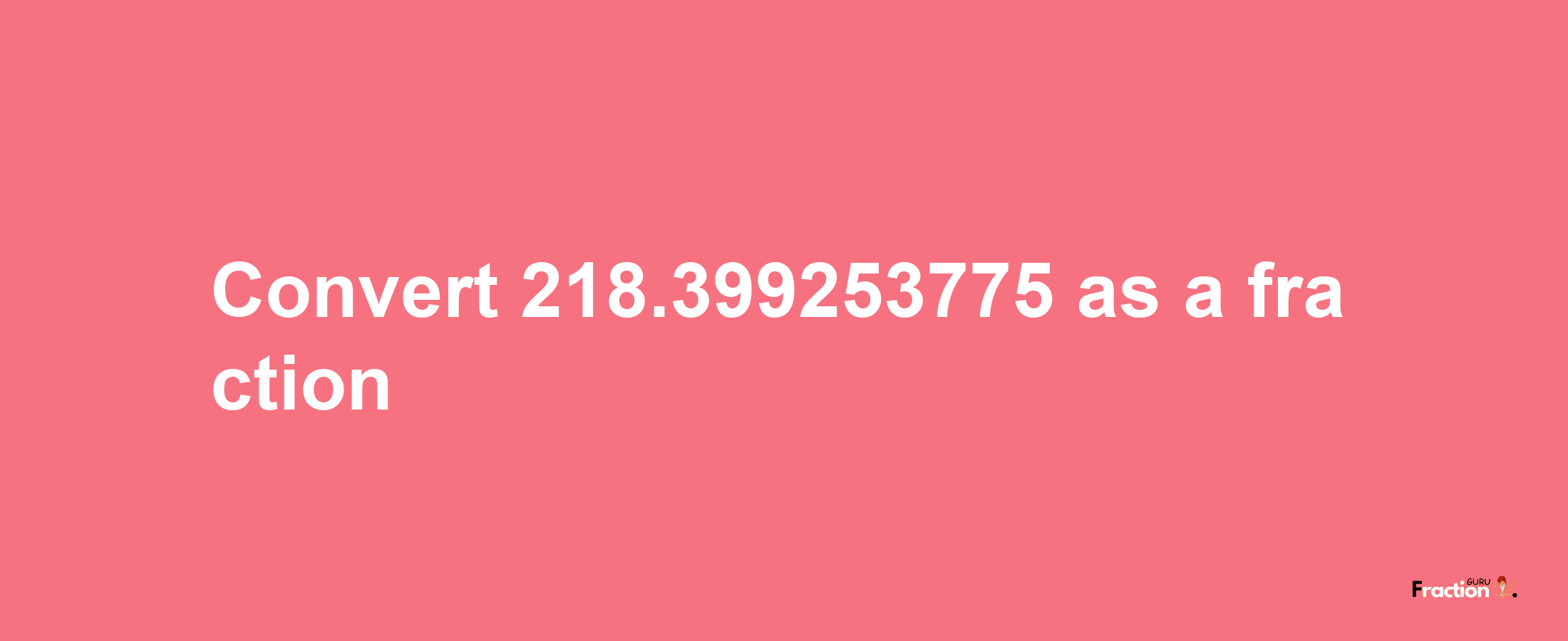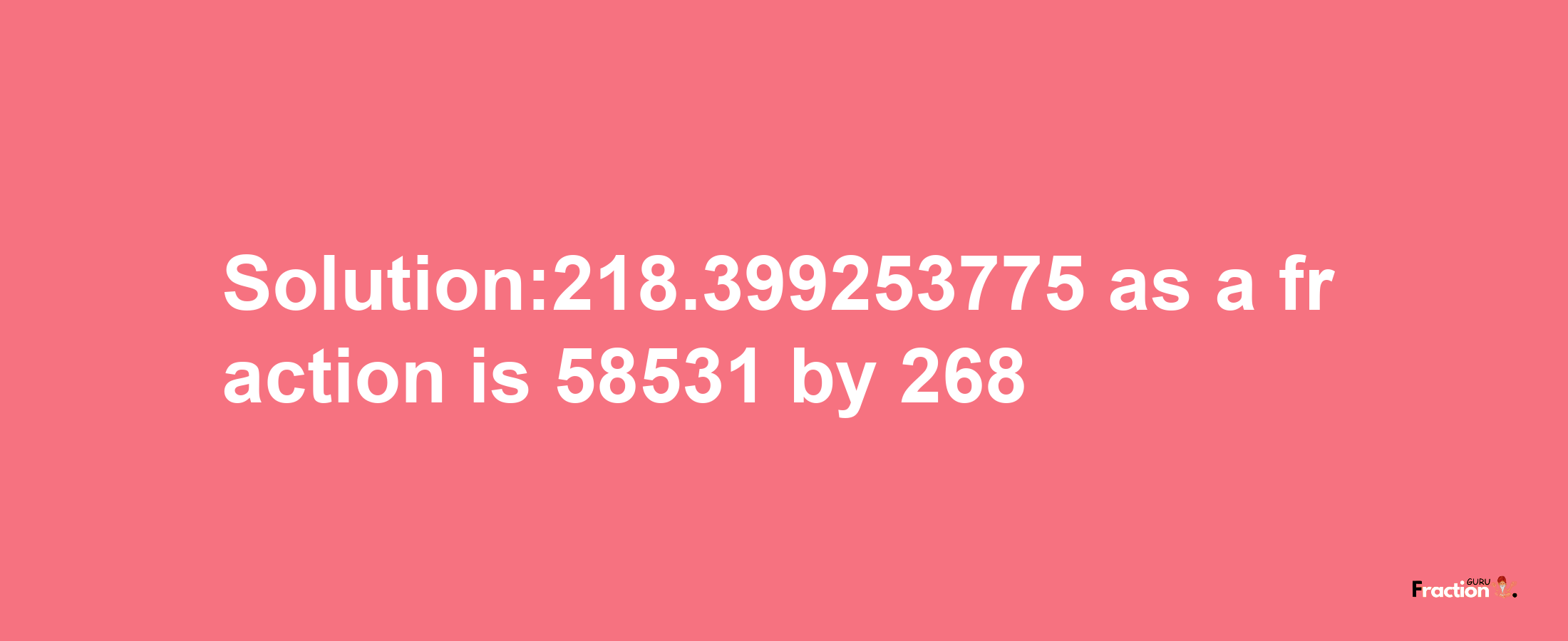Step 1:
The first step to converting 218.399253775 to a fraction is to re-write 218.399253775 in the form p/q where p and q are both positive integers. To start with, 218.399253775 can be written as simply 218.399253775/1 to technically be written as a fraction.
Step 2:
Next, we will count the number of fractional digits after the decimal point in 218.399253775, which in this case is 9. For however many digits after the decimal point there are, we will multiply the numerator and denominator of 218.399253775/1 each by 10 to the power of that many digits. So, in this case, we will multiply the numerator and denominator of 218.399253775/1 each by 1000000000:
Step 3:
Now the last step is to simplify the fraction (if possible) by finding similar factors and cancelling them out, which leads to the following answer for 218.399253775 as a fraction:
58531/268 / 1


